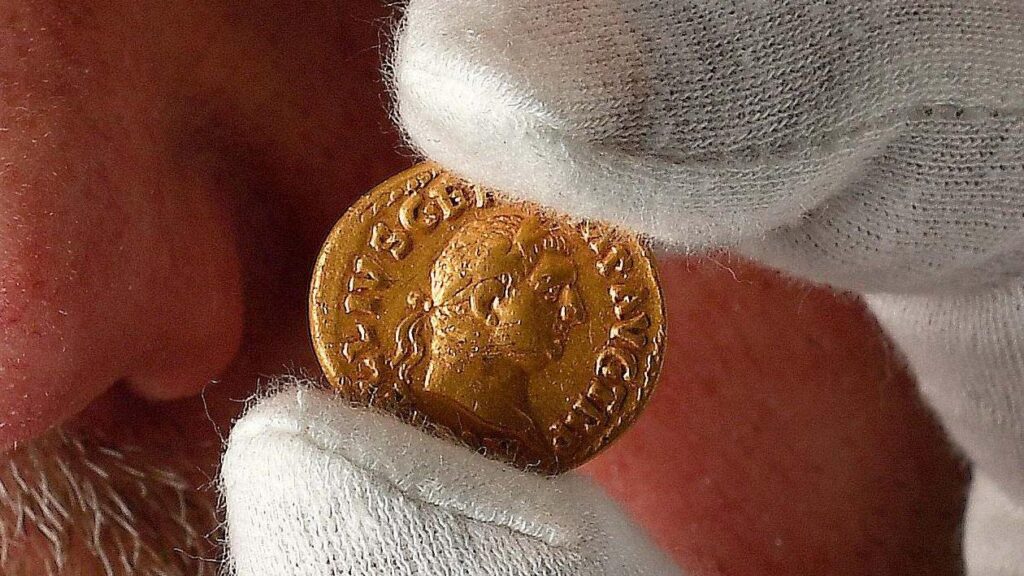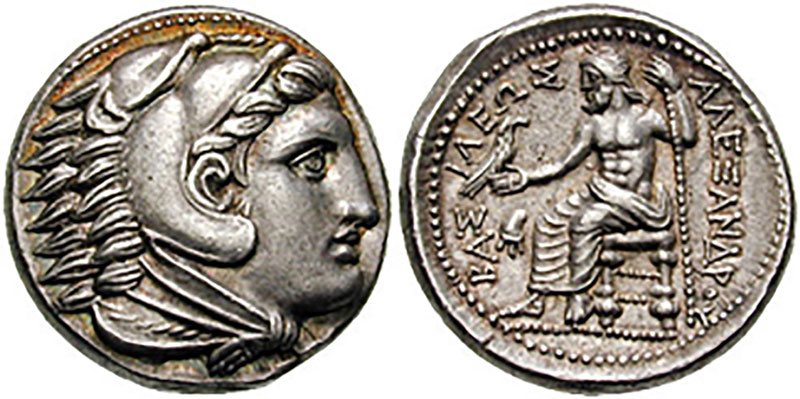A rare Roman coin unearthed in a UK field has fetched nearly £5,000 at auction, drawing significant attention from collectors and historians alike.
The golden relic—identified as an aureus, a high-purity Roman coin—was discovered by 76-year-old Ron Walters, a retired engineer from Kingswinford, West Midlands, using his metal detector during a routine outing.
The discovery and subsequent sale underscore the continuing fascination with Roman artefacts in Britain, especially as more such historical treasures come to light thanks to hobbyist metal detectorists.
A Rare Find: The Roman Aureus
The aureus was a gold coin used in the Roman Empire from the late Republic period around the 1st century BC until the early 4th century AD. Known for its high gold content—often more than 99% pure—the aureus was typically valued at 25 silver denarii, making it a coin of considerable value in ancient times.
Mr. Walters, who has been metal detecting for several years, described the find as the highlight of his hobby. He initially believed the coin to be a modern reproduction, but expert analysis confirmed its authenticity and exceptional preservation.
“I couldn’t believe what I’d found. It was just lying there, waiting for someone to pick it up,” said Mr. Walters in a statement to the press.

Historical Significance and Expert Insights
The aureus is believed to have originated during the reign of Roman Emperor Marcus Aurelius, who ruled from AD 161 to 180. Coins from this era are highly collectible due to their association with one of Rome’s most revered philosopher-kings.
Experts note that such finds help to deepen our understanding of Roman Britain’s economy and trade networks. According to Historic England, the UK has been home to numerous Roman hoards, often discovered by amateurs with metal detectors and reported through the Portable Antiquities Scheme (Finds.org.uk).
Auction and Collector Interest
The coin was auctioned by Hansons Auctioneers, a respected UK auction house known for handling historical artefacts. It was initially expected to fetch between £2,500 and £3,500 but ultimately sold for £4,800 after a flurry of competitive bidding.
The sale highlights the strong market demand for ancient coins, especially gold coins from the Roman era. According to a report by The British Museum, coins like the aureus not only serve as collectibles but also offer insight into imperial propaganda, economic policies, and artistic trends of ancient Rome.

Legal and Ethical Considerations
The UK has a structured framework in place to deal with the discovery of historical artefacts. Under the Treasure Act 1996, certain finds—such as gold and silver coins over 300 years old—must be reported to local authorities or a designated finds liaison officer.
In this case, Mr. Walters followed the correct procedures, ensuring the coin was legally assessed and appropriately registered. More information about the legalities surrounding such finds can be accessed via the UK Government’s Treasure Act guidance.
Continuing the Tradition of Discovery
Mr. Walters is now regarded as part of a long tradition of citizen archaeologists in the UK who have helped expand historical records through their discoveries. Recent years have seen a rise in such finds, with notable examples including the Helmingham Hall Hoard in Suffolk, comprising 748 gold and silver coins dating back to the Roman occupation of Britain.
The full details of that hoard and others like it are documented by the Portable Antiquities Scheme, which encourages public engagement with archaeology while preserving historical context.
Final Thoughts
The sale of this rare Roman coin is more than just a windfall for one lucky retiree—it’s a reminder of Britain’s deep historical layers and the enduring legacy of the Roman Empire. With the right tools, knowledge, and a bit of luck, even hobbyists can uncover treasures that rewrite history.
This article has been carefully fact-checked by our editorial team to ensure accuracy and eliminate any misleading information. We are committed to maintaining the highest standards of integrity in our content.

Himanshu Sharma writes for Weekend Spy, focusing on recruitment, government schemes, and current affairs. He is dedicated to making complex information accessible to readers.
Himanshu enjoys playing chess, hiking, and trying new recipes, always seeking ways to combine his love for writing with his passion for exploration. Connect with Drop him an email at [email protected].







